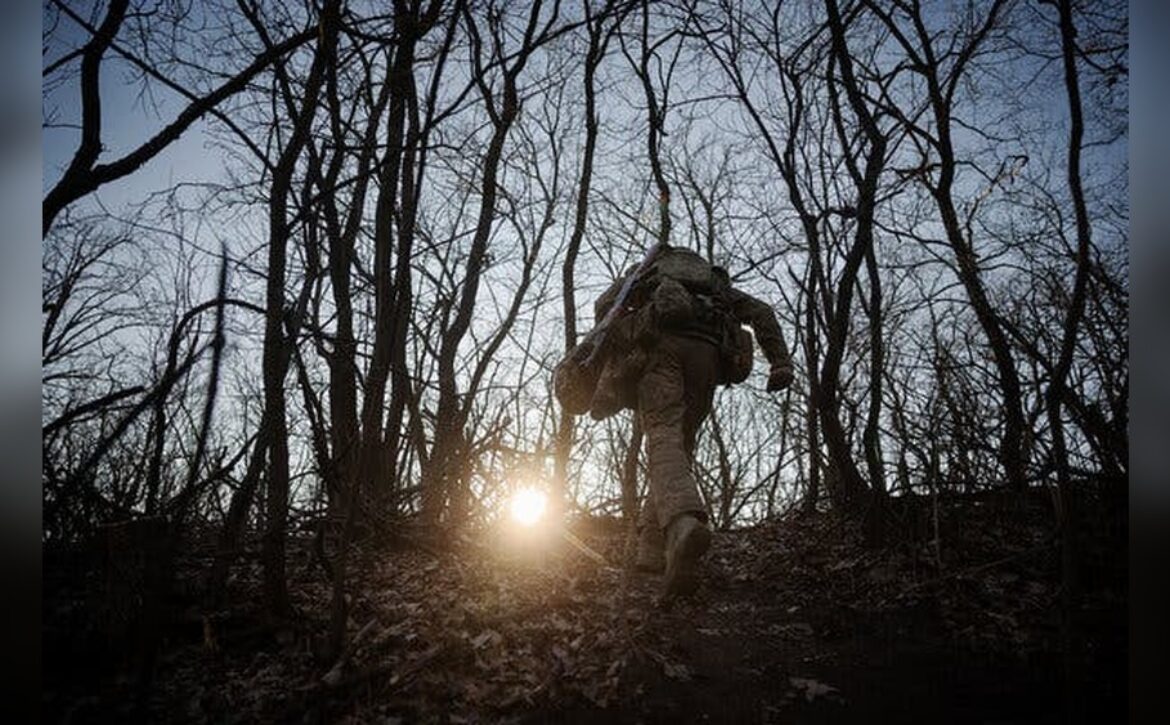
How to Become a Close Protection Expert: Step-by-Step Guide
Imagine stepping into a role where your quick thinking and keen instincts are your greatest assets. Becoming a close protection professional, often known as a bodyguard, is more than just a job; it’s a commitment to safeguarding lives.
You might be drawn to this field by the promise of excitement or the desire to make a real difference in people’s lives. Whatever your motivation, understanding how to break into this elite circle is essential. As you read on, you’ll uncover the steps needed to transform your interest into a rewarding career.
From training requirements to essential skills, this guide will provide you with the insights necessary to navigate the path to becoming a close protection expert. The journey may seem daunting, but with the right knowledge, you can position yourself for success in this dynamic field. Are you ready to take the first step toward a career filled with purpose and potential? Let’s dive in.

Understanding Close Protection
Understanding close protection is essential for anyone aspiring to enter this field. It involves safeguarding individuals from potential threats and ensuring their security. This profession requires keen awareness, vigilance, and dedication. Close protection officers, often known as bodyguards, play a crucial role in the personal security industry.
Role And Responsibilities
The primary role of a close protection officer is to protect their client. This includes assessing potential risks and planning safe routes. They must stay alert and ready to react to any threat. Their responsibilities also involve coordinating with local authorities for enhanced security. In high-risk environments, their presence can deter potential threats. They must maintain discretion, ensuring the client’s privacy at all times.
Importance In Security
Close protection is vital in today’s unpredictable world. High-profile individuals often face various security threats. A close protection officer helps mitigate these risks. Their presence provides a sense of safety and assurance. They are trained to handle emergencies swiftly and effectively. Their expertise can prevent dangerous situations from escalating. By ensuring the safety of individuals, they contribute to overall public security.
Essential Skills
Becoming a close protection officer is a challenging yet rewarding career. To succeed in this field, you need to develop a set of essential skills. These skills will not only ensure your effectiveness but also your safety and that of your client. Let’s explore some of the key abilities you should master to thrive in this role.
Communication
Effective communication is the backbone of close protection work. You must clearly convey your thoughts and instructions to your team and client. Miscommunication can lead to critical errors, so always aim for clarity.
Active listening is equally important. Pay attention to what others are saying to fully understand their needs and concerns. This skill builds trust and ensures everyone is on the same page.
Consider a time when a simple misunderstanding could have led to a major issue. How did effective communication save the day? Reflecting on such experiences can highlight the importance of this skill.
Situational Awareness
Situational awareness is your ability to assess your surroundings constantly. You need to identify potential threats before they escalate. This skill requires a keen eye and quick thinking.
Are you always aware of the exits in a room? Can you spot unusual behavior? Practice these skills daily to sharpen your instincts.
Remember, being proactive is better than reactive. Maintaining high situational awareness can be the difference between safety and danger.
Physical Fitness
Physical fitness is crucial for a close protection officer. Your job may require you to act swiftly or defend your client physically. Regular exercise should be part of your routine to ensure you’re ready for any situation.
But fitness isn’t just about strength. It’s about endurance and agility too. You need to maintain high energy levels to stay alert throughout your duties.
Think about your current fitness level. Are you prepared to handle the physical demands of the role? Regularly challenge yourself to improve your capabilities.
Mastering these essential skills will set you apart in the field of close protection. Each skill contributes to your effectiveness and safety. Remember, continuous improvement is key to becoming the best in your role. Are you ready to take the next step in your journey?
Educational Requirements
Becoming a close protection officer requires specific educational qualifications. This specialized field demands rigorous training and dedicated learning. Understanding the educational path can guide aspiring professionals. Below are the key areas to focus on.
Relevant Courses
Security management courses offer foundational knowledge. They cover risk assessment and situational awareness. Emergency response training is crucial. It prepares you for real-life scenarios. Courses in communication skills enhance interaction capabilities. They help in dealing with clients effectively. Cultural awareness courses are beneficial. They teach respect and understanding of diverse backgrounds.
Certifications
Certifications validate your expertise. They enhance credibility in the industry. First aid certification is essential. It prepares you for medical emergencies. Security industry authority (SIA) licenses are mandatory. These licenses ensure adherence to legal standards. Defensive driving certification is advantageous. It equips you for safe transportation duties. Firearm handling certifications might be required. They ensure proficiency and safety in weapon use.
Training Programs
Training programs are the cornerstone of becoming a skilled close protection professional. Whether you’re guarding a celebrity, a diplomat, or a corporate executive, rigorous training is essential to prepare you for any situation. These programs offer a blend of physical skills, mental acuity, and strategic thinking.
Basic Training
Basic training lays the foundation for your career in close protection. You’ll learn essential skills such as threat assessment, crowd management, and basic first aid. Imagine you’re in a crowded event and spot potential trouble—your training helps you act swiftly and effectively.
Classes often include simulated exercises to mimic real-life scenarios, ensuring you’re ready to face actual challenges. You’ll be taught how to maintain a professional demeanor even under pressure. This training is your first step in building a robust toolkit of skills.
Advanced Techniques
Once you’ve mastered the basics, advanced techniques elevate your capabilities. You’ll dive into defensive driving, high-tech surveillance, and strategic planning. Picture yourself orchestrating a complex security detail that requires meticulous coordination.
Advanced courses often include modules on tactical communication and risk analysis, pushing you to think critically. You’ll also learn how to adapt quickly to changing situations, a skill that can make all the difference in high-stakes environments.
Consider this: how can you ensure a smooth operation when variables change at a moment’s notice? Advanced training prepares you for these unpredictable elements, enhancing your resilience and problem-solving skills.
Are you ready to take on the challenge and transform your passion into expertise? Training programs are your gateway to becoming a close protection specialist. Dive into the learning process, and you’ll emerge with the skills and confidence to excel in this dynamic field.
Gaining Experience
Gaining experience in close protection involves hands-on training and real-world practice. Working with seasoned professionals provides valuable insights. Attending specialized courses helps build essential skills needed for the role.
Gaining experience is a crucial step on your journey to becoming a close protection professional. It’s not just about having the right qualifications; it’s about building a solid foundation of hands-on skills that set you apart. Let’s explore how you can effectively gain this invaluable experience.
Entry-level Positions
Starting from the ground up, entry-level positions provide a gateway into the close protection industry. Consider roles such as security guards or event security staff. These positions offer real-world exposure to security protocols and crowd management. Working in these roles helps you understand the dynamics of security work. You’ll learn how to assess potential threats and respond effectively. Each shift is a chance to hone your situational awareness and problem-solving skills. Additionally, employers often look for experience in related fields. Military or law enforcement backgrounds can be beneficial. However, even without such backgrounds, demonstrating reliability and a strong work ethic in entry-level roles can open doors to advancement.
Networking In The Industry
Building connections is vital in the close protection field. Networking can lead to mentorship opportunities and job referrals. Attend industry events and join relevant online forums to meet professionals and learn from their experiences. Personal connections can provide insights that formal training doesn’t cover. A colleague once shared how a casual conversation at a security conference landed him a high-profile client. Consider joining professional associations or security organizations. These groups often host events and workshops that can enhance your skills and expand your network. What steps are you taking to build your network? Remember, every connection is a step closer to your goal. Don’t underestimate the power of a strong professional network in shaping your career path.
Building A Professional Reputation
Building a professional reputation in the field of close protection is crucial. It’s not just about skills; it’s about trust and reliability. When clients seek protection, they want someone who is both competent and dependable. Your reputation will often precede you, impacting your ability to secure jobs and build long-term relationships. Let’s explore how maintaining professionalism and continuous learning can help you establish a strong reputation in close protection.
Maintaining Professionalism
Professionalism is the cornerstone of a good reputation. It means being punctual, respectful, and attentive at all times. Simple actions like dressing appropriately and using polite language can set you apart. Clients notice these details, and they contribute to your image as a reliable protector.
In close protection, discretion is key. Respect client privacy and confidentiality. Avoid discussing details of your assignments with outsiders. This builds trust and shows your commitment to safeguarding not just their physical well-being but their personal information too.
Think about the last time you interacted with a professional who made you feel secure and respected. How did they conduct themselves? Strive to emulate those qualities in your own practice. Your reputation will flourish when clients feel valued and protected.
Continuous Learning
The security field is always evolving. New technologies and tactics emerge regularly. To stay ahead, commit to continuous learning. Attend workshops, read industry publications, and seek mentorship from experienced professionals. This keeps your skills sharp and up-to-date.
Consider taking courses in advanced security techniques or emergency medical response. Such knowledge not only enhances your capability but also adds layers to your professional reputation. Clients will appreciate a protector who is ready for any scenario.
Ask yourself: What skills could you improve to become more effective in your role? Identify areas for growth and take proactive steps. The pursuit of knowledge demonstrates your dedication to excellence in close protection.
Building a professional reputation is a journey. Each interaction, each new skill learned, contributes to the legacy you create in the close protection industry. Embrace the opportunities to refine your professionalism and expand your expertise. Your reputation will reflect your commitment and drive, attracting clients who trust in your ability to protect them.
Career Advancement Opportunities
Choosing a career in Close Protection can offer exciting growth. With dedication, professionals can advance to specialized roles and leadership positions. Understanding these opportunities can help you plan a successful career path.
Specialized Roles
Close Protection specialists can focus on niche areas. One option is becoming an expert in cybersecurity protection. This involves safeguarding clients against digital threats. Another path is specializing in threat assessment. This requires analyzing potential risks for clients. Working with high-profile individuals may open doors to these roles. These specialized areas require additional training. Skills like situational awareness and risk management are crucial. Specialized roles often involve higher responsibilities and rewards.
Leadership Positions
Leadership in Close Protection is achievable with experience and skills. Supervisors oversee security teams and coordinate protection strategies. They ensure all operations run smoothly and efficiently. Managers have broader responsibilities. They manage budgets and client relations. Leadership roles demand strong communication skills. They also require the ability to make quick decisions. These positions can lead to further career growth. Leadership can be a rewarding path in Close Protection.


Frequently Asked Questions
What Skills Are Needed For Close Protection?
Close protection officers need exceptional observational skills and keen attention to detail. They must possess strong communication and problem-solving abilities. Physical fitness and self-defense skills are essential. Understanding risk assessment and threat management is crucial. Professionalism and discretion are key qualities.
How Long Is Close Protection Training?
Close protection training typically lasts between two to four weeks. The duration varies based on the program and provider. Comprehensive courses cover various essential skills. These include threat assessment, tactical driving, and first aid. Some advanced programs may extend to several months.
Do You Need A License For Close Protection?
Yes, a license is required to work in close protection. In most countries, this involves completing certified training. The licensing process ensures that officers meet industry standards. Regular updates and renewals of the license are often mandatory. This ensures continued compliance with safety regulations.
What Is The Salary Of A Close Protection Officer?
Close protection officers can earn between $50,000 to $100,000 annually. Salary depends on factors like experience and location. High-risk assignments often offer higher pay. Working for high-profile clients can significantly increase earnings. Additional benefits may include travel and accommodation allowances.
Conclusion
Becoming a close protection officer is both challenging and rewarding. You need dedication, patience, and the right skills. Training plays a crucial role in your success. Practical experience boosts your confidence and competence. Stay informed about new techniques and technologies.
Continuous learning is key in this field. Building strong relationships with clients is important. Trust and reliability are essential for success. Remember, safety is your top priority. Protecting others is a serious responsibility. With hard work, you can excel in this career.
Aim for excellence and stay committed to your path. Your journey can make a real difference.





